
0
+
Google Reviews

0
+
4.8 (2097 Ratings)
Manual Testing is a structured process of evaluating software applications by human testers to ensure that they meet specified requirements and quality standards. Manual Testing is valuable for various reasons, including its adaptability to different testing scenarios, early-stage testing, and its ability to assess the user experience. However, it can be time-consuming and may not be practical for repetitive or large-scale testing efforts.


Curriculum Designed by Experts
What is testing?
Why is testing necessary?
Economics of Testing:
Black Box Testing
White Box Testing
Software Testing Principles
STLC (Software Testing Life Cycle)
Software Development models:
Waterfall model
V – Model
Spiral model
Prototype model (RAD)
Agile methodology
Reviews and the test process
Review Process
Inspections and Walkthroughs
Code Inspection
Identifying test conditions and designing test cases
Categories of test design techniques
Specification-based or black-box techniques
Boundary Value Analysis
Decision Table Testing
Equivalence Partitioning
State Transition Testing
Use Case Testing
Structure-based or white-box techniques
Code Coverage
Decision Coverage
Statement Coverage
Structural Testing
Experience-based techniques
Error Guessing
Exploratory Testing
Choosing a test technique
Test Organization
Test Plans, Estimates, and strategies
Test progress monitoring and control
Configuration Management
Risk and Testing
Incident Management
Function Testing
Volume Testing
Stress Testing
Usability Testing
Security Testing
Performance Testing
Configuration Testing
Reliability Testing
Recovery Testing
The Quality Center Testing Process
Starting Quality Center
The Quality Center Window
Defining Releases and Cycles
Viewing Releases and Cycles
Defining Requirements
Viewing Requirements
Modifying Requirements
Converting Requirements
Developing a Test Plan Tree
Designing Test Steps
Copying Test Steps
Calling Tests with Parameters
Creating and Viewing Requirements Coverage
Defining Test Sets
Adding Tests to a Test Set
Scheduling Test Runs
Running Tests Manually
Viewing and Analyzing Test Results
How to Track Defects
Adding New Defects
Matching Defects
Updating Defects
Linking Defects to Tests
Creating Favorite Views
Course on Manual Testing Your training gives you marketable abilities. like test case design, bug tracking, and reporting. Master tools and techniques to ensure software quality. Enroll in a certification program for manual testing to advance your career in QA by learning key testing methodologies and industry standards.
Manual Testing Course Training opens doors to diverse career opportunities, including roles like QA Tester, Test Analyst, and QA Engineer. Enroll in Manual Testing Course Certification to master testing skills, ensuring software quality and unlocking career growth in the ever-evolving software industry.
Boost your career with our Manual Testing Course Certification. With the rise of Cloud Adoption, manual testers are in high demand to ensure seamless cloud migration and functionality. Enroll now and gain hands-on skills from industry experts to excel in the evolving software testing landscape.
Boost your career by mastering the Scalability and Flexibility of manual testing with our Manual Testing Course Certification. Learn essential techniques to adapt testing processes to dynamic projects, ensuring high-quality results across different platforms. Enroll now to gain valuable skills for any project scale.
Master Cost Management in software projects with our Manual Testing Course Certification. Learn how effective manual testing can reduce costs by detecting bugs early, preventing expensive fixes later. Enroll today to gain valuable skills and optimize your testing process for budget-friendly outcomes.
Enrolling in a Manual Testing course ensures strong skills in identifying security vulnerabilities and maintaining compliance standards. Through this certification, learn manual testing techniques to enhance software security, ensuring your applications meet industry regulations and safety requirements.
Radical Technologies is the leading IT certification institute in Pune, offering a wide range of globally recognized certifications across various domains. With expert trainers and comprehensive course materials, it ensures that students gain in-depth knowledge and hands-on experience to excel in their careers. The institute’s certification programs are tailored to meet industry standards, helping professionals enhance their skillsets and boost their career prospects. From cloud technologies to data science, Radical Technologies covers it all, empowering individuals to stay ahead in the ever-evolving tech landscape. Achieve your professional goals with certifications that matter.
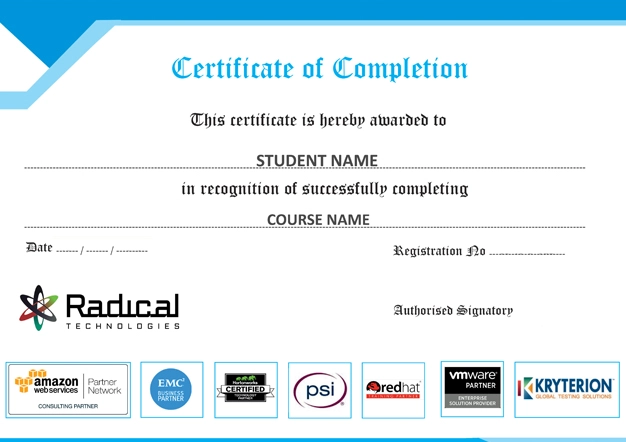


At Radical Technologies, we are committed to your success beyond the classroom. Our 100% Job Assistance program ensures that you are not only equipped with industry-relevant skills but also guided through the job placement process. With personalized resume building, interview preparation, and access to our extensive network of hiring partners, we help you take the next step confidently into your IT career. Join us and let your journey to a successful future begin with the right support.
At Radical Technologies, we ensure you’re ready to shine in any interview. Our comprehensive Interview Preparation program includes mock interviews, expert feedback, and tailored coaching sessions to build your confidence. Learn how to effectively communicate your skills, handle technical questions, and make a lasting impression on potential employers. With our guidance, you’ll walk into your interviews prepared and poised for success.
At Radical Technologies, we believe that a strong professional profile is key to standing out in the competitive IT industry. Our Profile Building services are designed to highlight your unique skills and experiences, crafting a resume and LinkedIn profile that resonate with employers. From tailored advice on showcasing your strengths to tips on optimizing your online presence, we provide the tools you need to make a lasting impression. Let us help you build a profile that opens doors to your dream career.

Infrastructure Provisioning
Implementing automated infrastructure provisioning and configuration management using Ansible. This may include setting up servers, networking devices, and other infrastructure components using playbooks and roles.

Applications Deployment
Automating the deployment and orchestration of applications across development, testing, and production environments. This could involve deploying web servers, databases. middleware, and other application components using Ansible

Continuous Integration
Integrating Ansible into CI/CD pipelines to automate software. build, test, and deployment processes. This may include automating the creation of build artifacts, running tests, and deploying applications to various environments.

Radical Technologies provided me with an excellent manual testing course. The instructors were knowledgeable and supportive, and the hands-on projects helped me gain practical experience.
I highly recommend Radical Technologies for anyone looking to learn manual testing. The course content was comprehensive, and the instructors made complex concepts easy to understand.
The online manual testing course at Radical Technologies was convenient and well-structured. I appreciated the flexibility to study at my own pace while still receiving guidance from experienced instructors.
Thanks to Radical Technologies, I was able to transition into a manual testing role with confidence. The course equipped me with the skills and knowledge needed to succeed in the industry.
I am grateful for the job placement assistance provided by Radical Technologies. It helped me secure a position as a manual tester at a reputable company.
The practical exercises in the manual testing course were invaluable. They allowed me to apply what I learned in real-world scenarios and develop my testing skills.
Radical Technologies exceeded my expectations with their manual testing course. The instructors went above and beyond to ensure that all students understood the material thoroughly.
I was impressed by the professionalism and dedication of the instructors at Radical Technologies. They were always available to answer questions and provide guidance throughout the course.
The manual testing course at Radical Technologies provided me with a solid foundation in software testing principles. I feel confident in my ability to tackle testing challenges in my future career.
I am grateful for the support and encouragement I received from the staff at Radical Technologies. They created a positive learning environment that fostered growth and development.
The hands-on projects in the manual testing course helped me build a portfolio of work that I could showcase to potential employers. It was a valuable addition to my resume.
I appreciated the emphasis on practical learning in the manual testing course. It helped me gain confidence in my abilities and prepared me for real-world testing scenarios.
Radical Technologies provided me with the tools and resources I needed to succeed in manual testing. I am grateful for the opportunity to learn from industry experts.
The instructors at Radical Technologies were passionate about teaching and genuinely cared about their students' success. I felt supported throughout the duration of the course.
I would highly recommend Radical Technologies to anyone interested in pursuing a career in manual testing. The course curriculum was comprehensive, and the instructors were top-notch.
The online manual testing course at Radical Technologies was user-friendly and easy to navigate. I appreciated the interactive elements that made learning engaging and enjoyable.
I am amazed by how much I learned in the manual testing course at Radical Technologies. The instructors covered a wide range of topics and provided practical insights that were invaluable.
Thanks to Radical Technologies, I was able to land a job as a manual tester shortly after completing the course. I am grateful for the opportunities it has opened up for me.
The manual testing course at Radical Technologies was worth every penny. It provided me with the skills and knowledge I needed to excel in my new career.
I was impressed by the job placement assistance provided by Radical Technologies. They helped me fine-tune my resume and prepare for interviews, which ultimately led to job offers.
The instructors at Radical Technologies were patient and supportive, even when I struggled with certain concepts. Their guidance was instrumental in my learning journey.
The practical exercises and case studies in the manual testing course challenged me to think critically and problem-solve. They were a highlight of the learning experience.
I am grateful for the networking opportunities provided by Radical Technologies. I met fellow students and industry professionals who have become valuable contacts in my career.
The manual testing course at Radical Technologies was comprehensive and well-paced. I never felt overwhelmed, and the material was presented in a way that was easy to digest.
I cannot thank Radical Technologies enough for helping me kickstart my career in manual testing. The skills and knowledge I gained have been invaluable in my professional journey.








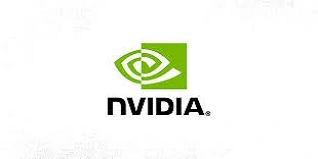
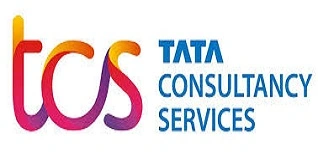




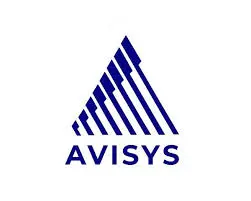





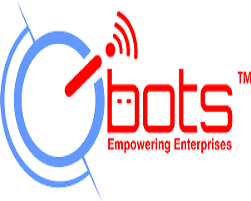





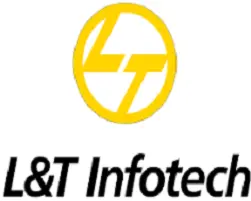
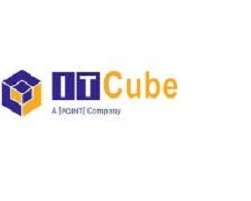








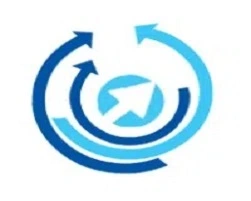


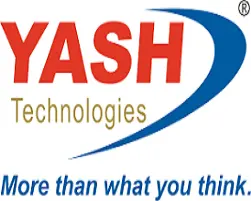

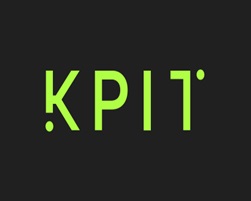

Manual testing is a process of testing software manually to ensure it behaves as expected without the use of automation tools.
A manual testing course typically covers fundamental testing concepts, test case creation, execution, defect tracking, and various testing techniques.
Yes, manual testing is suitable for beginners as it provides a solid foundation in software testing principles and practices.
Generally, there are no specific prerequisites for a manual testing course, but having basic computer skills and an understanding of software applications is beneficial.
No, manual testing doesn’t require programming knowledge as it involves executing test cases manually without writing code.
The duration of a manual testing course can vary, but it typically ranges from a few weeks to a few months, depending on the depth of the curriculum.
After completing a manual testing course, you can pursue roles such as manual tester, quality assurance analyst, test engineer, or software tester in various industries.
Yes, there are several certifications available for manual testing, such as ISTQB Foundation Level, which can enhance your credibility as a tester.
The cost of a manual testing course can vary depending on the institute, curriculum, and location. It’s advisable to check with the specific institute for accurate pricing.
Yes, many manual testing courses provide job placement assistance to help students find employment opportunities after completing the course.
Yes, there are many online platforms offering manual testing courses, allowing you to learn at your own pace from anywhere with an internet connection.
Yes, most manual testing courses include practical exercises and hands-on projects to reinforce learning and provide real-world experience.
In a manual testing course, you’ll learn about various testing tools such as bug tracking systems, test management tools, and document management tools.
You can search online or ask for recommendations from professionals in the industry to find the best manual testing course available nearby.
Manual testing involves executing test cases manually, whereas automation testing involves using tools to automate test case execution.
Ambegaon Budruk | Aundh | Baner | Bavdhan Khurd | Bavdhan Budruk | Balewadi | Shivajinagar | Bibvewadi | Bhugaon | Bhukum | Dhankawadi | Dhanori | Dhayari | Erandwane | Fursungi | Ghorpadi | Hadapsar | Hingne Khurd | Karve Nagar | Kalas | Katraj | Khadki | Kharadi | Kondhwa | Koregaon Park | Kothrud | Lohagaon | Manjri | Markal | Mohammed Wadi | Mundhwa | Nanded | Parvati (Parvati Hill) | Panmala | Pashan | Pirangut | Shivane | Sus | Undri | Vishrantwadi | Vitthalwadi | Vadgaon Khurd | Vadgaon Budruk | Vadgaon Sheri | Wagholi | Wanwadi | Warje | Yerwada | Akurdi | Bhosari | Chakan | Charholi Budruk | Chikhli | Chimbali | Chinchwad | Dapodi | Dehu Road | Dighi | Dudulgaon | Hinjawadi | Kalewadi | Kasarwadi | Maan | Moshi | Phugewadi | Pimple Gurav | Pimple Nilakh | Pimple Saudagar | Pimpri | Ravet | Rahatani | Sangvi | Talawade | Tathawade | Thergaon | Wakad
I had an amazing experience with this service. The team was incredibly supportive and attentive to my needs. The quality of the work exceeded my expectations. I would highly recommend this to anyone looking for reliable and professional service."
I had an amazing experience with this service. The team was incredibly supportive and attentive to my needs. The quality of the work exceeded my expectations. I would highly recommend this to anyone looking for reliable and professional service."
I had an amazing experience with this service. The team was incredibly supportive and attentive to my needs. The quality of the work exceeded my expectations. I would highly recommend this to anyone looking for reliable and professional service."
I had an amazing experience with this service. The team was incredibly supportive and attentive to my needs. The quality of the work exceeded my expectations. I would highly recommend this to anyone looking for reliable and professional service."
I had an amazing experience with this service. The team was incredibly supportive and attentive to my needs. The quality of the work exceeded my expectations. I would highly recommend this to anyone looking for reliable and professional service."
Manual testing remains a critical skill in the software development lifecycle, ensuring the highest level of product quality by manually identifying bugs, defects, and performance issues that automated tools might overlook. The Manual Testing Certification is designed to equip participants with a thorough understanding of the core principles, methodologies, and tools involved in manual testing. This certification is ideal for aspiring testers, quality assurance professionals, and developers aiming to enhance their understanding of manual testing practices.
Upon completing the Manual Testing Certification, participants are well-prepared to pursue roles such as:
With the certification, you can expect to gain a strong foothold in the testing domain, opening opportunities in diverse industries
Manual testing plays a crucial role in ensuring the quality of software applications across various domains. Despite advancements in automated testing, manual testing is indispensable for certain scenarios that require human observation, intuition, and analysis. Below are some key applications where manual testing is essential:
1. User Interface (UI) Testing
Manual testing is highly effective in validating the look and feel of a software application. UI elements such as buttons, text fields, menus, and graphics need to be visually inspected to ensure that they meet design specifications and function as intended. Manual testers can identify inconsistencies, alignment issues, font problems, and overall user experience that automated tools may overlook.
2. Usability Testing
One of the primary applications of manual testing is usability testing, where the focus is on evaluating the software’s ease of use from an end-user perspective. Testers manually navigate the application to ensure it is user-friendly, intuitive, and efficient. This testing is crucial for understanding how real users will interact with the software and for identifying any usability bottlenecks or pain points.
3. Ad-Hoc and Exploratory Testing
Manual testing excels in ad-hoc and exploratory testing, where testers rely on their creativity and experience to test the application without following predefined test cases. This allows testers to explore the software freely and uncover unexpected defects or behaviors that scripted automated tests might miss. Exploratory testing is particularly valuable in agile environments, where continuous feedback is essential.
4. Cross-Browser and Cross-Platform Testing
With the vast number of devices, operating systems, and browsers available today, it’s critical to ensure that applications function correctly across different environments. Manual testing is used to check how software behaves on different platforms (e.g., Windows, macOS, Android) and browsers (e.g., Chrome, Firefox, Safari). This helps identify compatibility issues that automated tests may not cover comprehensively.
5. Localization and Internationalization Testing
For applications deployed in different regions and languages, manual testing is essential to verify that translations, date formats, currency symbols, and cultural nuances are correctly implemented. Testers review the application’s content and interface to ensure that language and localization requirements are met, as well as testing for errors that could arise due to varying character sets.
6. Functional Testing
Functional testing ensures that the software operates according to the specified requirements. In this context, manual testing is used to validate individual functions and features of an application. Testers follow specific test cases to ensure each functionality works as expected and verify that inputs yield the correct outputs.
7. Accessibility Testing
Manual testing is vital for evaluating the accessibility of software applications, ensuring compliance with standards such as WCAG (Web Content Accessibility Guidelines). Testers check if the application is usable by individuals with disabilities, such as those who rely on screen readers, keyboard navigation, or other assistive technologies. This testing helps ensure that the software is inclusive and accessible to a wider audience.
8. Security Testing
While much of security testing can be automated, manual testing is still crucial for detecting potential vulnerabilities that require human judgment. Testers manually inspect the application for security weaknesses, such as input validation, SQL injection vulnerabilities, and unauthorized access points. Manual testers also perform tasks such as session hijacking and penetration testing to identify security flaws that automated tools may miss.
9. Regression Testing
Manual regression testing is often applied when verifying that new updates or changes to an application do not adversely affect existing functionality. While automation can be used for regression, manual testing is employed for areas of the software that have undergone significant changes or require careful observation of complex behaviors.
10. Mobile Application Testing
In mobile app development, manual testing is used to evaluate the performance, usability, and functionality of mobile applications on various devices and operating systems. Mobile apps require testing in real-world scenarios, such as testing GPS functionality, network connectivity, battery usage, and performance under different conditions (e.g., low memory). Manual testing helps in identifying device-specific issues and ensures a seamless experience for end users.
Welcome to Radical Technologies, your premier institute in Pune for comprehensive manual testing courses and certifications. At Radical Technologies, we specialize in offering top-notch training and coaching in manual software testing to help individuals kickstart or advance their careers in the field of quality assurance.
With a focus on delivering high-quality education, our manual testing courses cover everything from fundamental testing concepts to advanced testing techniques, ensuring that students gain a solid understanding of manual testing principles and practices. Whether you’re a beginner looking to enter the world of software testing or a seasoned professional seeking to enhance your skills, our courses cater to learners of all levels.
Our expert instructors bring years of industry experience to the classroom, providing hands-on training and real-world insights that prepare students for success in the competitive job market. Through interactive classes, practical exercises, and real-world projects, we ensure that students develop the necessary skills and confidence to excel in manual testing roles.
At Radical Technologies, we understand the importance of practical learning, which is why our curriculum includes extensive practical exercises and case studies to reinforce theoretical concepts. Students have the opportunity to work with popular software testing tools for manual testing, gaining valuable experience that translates directly to the workplace.
In addition to offering classroom-based training, we also provide online manual testing courses, allowing students to learn at their own pace and convenience from anywhere in the world. Our online platform features comprehensive course materials, video lectures, and interactive quizzes to facilitate effective learning.
As part of our commitment to student success, we offer job placement assistance to help graduates secure rewarding positions in the field of manual testing. Our extensive network of industry contacts and partnerships with leading companies in Pune ensures that students have access to a wide range of job opportunities upon completing their training.
Whether you’re seeking a manual testing course in Pune or looking to enhance your skills through online training, Radical Technologies is your trusted partner for quality education and career advancement in manual software testing. Join us today and take the first step towards a rewarding career in the exciting field of software testing.

(Our Team will call you to discuss the Fees)
